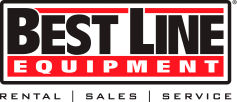Be Cautious of Winter's Hold on Your Machinery
It's important to get a jump start on winterizing your equipment so you don't get left stuck out in the cold. Take these proper precautions and your equipment will persist through the most frigid winter weather conditions.
Get Things Started: If your equipment sits in the cold all night, your machinery will need time to warm up. Fluids need to circulate and joints and hinges may need to be lubricated. Be proactive and perform regular inspections, especially during the winter. Check your fleet for the following:
- Start System: At startup, in cold conditions, diesel engines require a controlled amount of ether to reduce rough combustion and high cylinder pressures. The lack of this assistance can result in broken piston rings, piston scuffing, and a broken piston.
- Coolant System: Make sure to keep the radiator clean, belts and hoses in good condition, use water that meets the recommended specification, use proper antifreeze mix, add coolant conditioner on schedule, and take a coolant sample at each engine oil change interval.
- Good tire tread and pressure: Tread is needed as slippery conditions put your machines at risk of sliding. Cold weather also makes maintaining tire pressure more difficult, leading to lower fuel efficiency.
- Battery Charge: Your battery function is likely to be impacted by the cold. Regularly check the charge on batteries before start-up and watch out for any corrosion. Never attempt to jump start a frozen battery.
- Fluids and Lubricants: Fluids can thicken, clog filters, and strain hoses so check for leaks and build-up. Always top off your fuel tank to avoid moisture collecting and crystalizing in your tank as well.
During Operation: Winter is the darkest time of year so optimizing visibility and knowing your surroundings is the best way to maintain on-site safety. Here are some things to keep in mind during operation.
- Defrosters, wipers, & lights: Good visibility is essential especially with shorter daylight hours. Keep your windows free of condensation and replace broken headlights immediately.
- Heaters: Heat will prevent muscles from stiffening and inhibiting operation, so check your heating systems before temperatures drop. This will ensure your operators have a comfortable work environment in the cab.
- Watch your site: Snow and ice cab obscure your site and cover material that can damage tires. If your worksite is close to water, beware of hidden ice that will crack or cause machinery to slide or slip.
Shut Down: Ideally, equipment should be stored inside to protect it from the elements and keep fluids from solidifying. If that isn't an option, there are measures you should take to protect your equipment outside.
- Park on raised surfaces: Your equipment can freeze to the ground if it's left outside overnight in frigid temperatures. Park equipment on a raised surface like planks to prevent tire damage and ease start-up.
- Elevate attachments: Like tires, attachments can get stuck to the ground during winter. Raise them up or place them on planks to reduce strain on machinery joints.
Best Line Equipment offers winter weather tune-up specials that include system checks, fluid samples, and battery testing so your machine wont feel the deep winter freeze. Contact your local Best Line Equipment location to schedule an appointment or visit: https://www.bestline.com/check-out-our-services--servicecap
